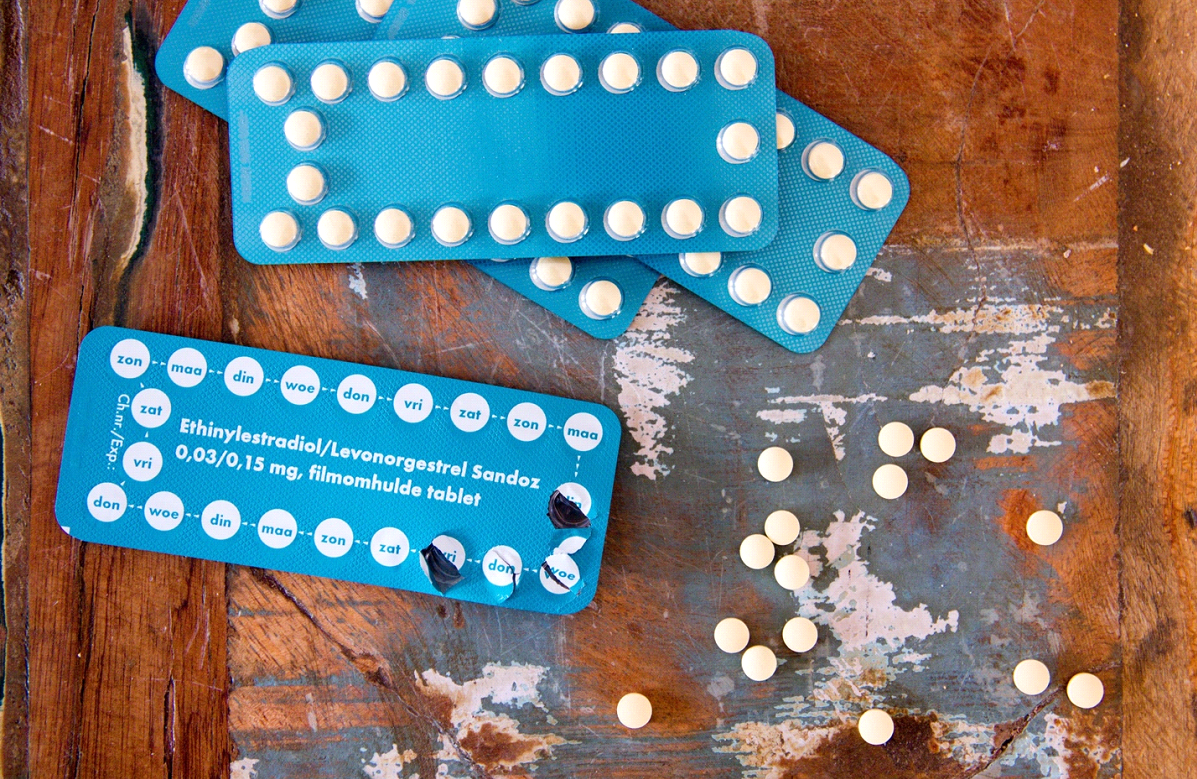What's the difference between a brand name drug and a generic drug?

It's a common experience: You go to the pharmacy with a prescription for a brand name drug, but you fill the prescription with a generic drug instead to save money. This is because most states have laws requiring pharmacists to fill a prescription with the generic option, if available, unless the provider has written “DAW,” which means “dispense as written.” This is generally a very good thing!
The word “generic” can have bad associations. Some people hear it and immediately think of a “grocery store brand” bag of chips that might be inferior to the brand name product. However, for medication, this is usually not the case at all. When possible, to save money, the generic option is the better choice. There are exceptions, though, which I will discuss below.
Will a generic drug work the same way as a brand-name drug?
Yes! Generic medications are made to work the same way as brand name medications in the U.S. and in many other countries, too. The Food and Drug Administration (FDA) approves generic medications that not only work the same way but also provide the same clinical benefits as brand name medications. Of greatest importance is the fact that generic medications have the same active pharmaceutical ingredient (API) as their brand name counterparts. The API is the main ingredient in a drug that impacts the body to treat a medical condition or prevents a patient from getting sick.
A generic drug company must show the FDA that the drug is essentially the same as the brand before it comes to market in the following ways:
- Dosage – how often the drug is taken
- Safety – ensuring no harm is done to patients if taken appropriately
- Effectiveness – how well the drug works in treating its indications
- Strength – the amount of drug needed to provide clinical benefit
- Stability – the ability of the drug to preserve clinical benefits after it is manufactured
- Quality – how pure the drug is to provide clinical benefits
What are some differences between generic and brand name medications?
Inactive Ingredients
The inactive ingredients and excipients (i.e. substances that serve as the vehicle or medium for the active ingredient in a drug) used in generic drugs can be and are often different than the brand-name products. The FDA must approve of inactive ingredients when it approves new brand drugs; it must do so for new generic counterparts as well.
Generics and brand name drugs frequently have different inactive ingredients because a generic cannot be an exact replica of the brand name drug. An exact replica would be a violation of the intellectual property rights of the brand drug company.
Appearance
Generic medications look different than the brand-name counterpart. It is important to note that differences in color, shape or size have don’t affect how well generics work compared to brand. After all, the same brand medications can vary in appearance, such as color and shape, across the globe despite being made by the same company.
Cost
Pricewise, generic drugs are usually much cheaper than brands.
Savings Alert: Generic drugs sold in U.S. pharmacies are often but not always cheaper than generic drugs sold in Canada and other countries.
Are generic drugs as safe as their brand name versions?
Yes, but there are qualifications! Properly manufactured generic drugs are just as safe as their brand name versions. By law, the FDA is required to regulate generic medication in the U.S. through a very thorough review process before the drugs can go on the market.
First of all, a rigorous scientific and clinical review is performed for all new drugs in the U.S. to make sure they are safe and effective. For new drugs under patent, companies apply for what is called a New Drug Application (NDA). The applicant proves to the FDA that the drug will be safe and effective, manufactured in accordance with FDA’s standards, and labeled properly to best inform medical professionals and patients.
The NDA application requires: 1) Testing in animals to determine safety 2) Testing in a small number of humans to further determine safety and show efficacy 3) Testing a much larger number of humans to prove more definitively the safety and efficacy of the drug
Drug companies that wish to sell a generic version of a brand already approved under an NDA must submit what is called an Abbreviated New Drug Application (ANDA). ANDA applicants do not have to conduct the same clinical trials because the drug has already been established as safe and effective in the NDA.
However, through the ANDA, the drug company must be able to demonstrate the generic version will work the same as an existing approved brand name drug in (as stated above) dosage form, safety, effectiveness, strength, route of administration, quality, and stability. These "sameness" characteristics are referred to as bioequivalence.
The FDA also conducts 3,500 inspections of drug manufacturing plants a year, to ensure compliance with their high standards and regulations on good manufacturing practices.
The FDA continually monitors brand and generic drug products to make sure active the entire supply chain—from pharmaceutical ingredients (API) to finished drug products—is safe, effective and of high quality.
What’s the difference in price between brand and generic?
Generic medicines are cheaper than their brand-name versions because they don’t have to repeat the animal and clinical studies that were required for the NDA. Also, multiple generic drug applications can be approved to sell a single product; this allows for competition in the marketplace. This competition among drug makers results in prices about 85% lower than the brand-name version. Generic drugs saved the U.S. health care system $1.67 trillion from 2007 to 2016 per the IMS Health Institute.
You can use the U.S. Prescription Discount Card for brand or generic medication discounts at all major chains and most independent pharmacies nationwide. Generic drug savings using the card can be as high as 90%. Brand discounts seldom reach even 20%. If you can’t afford your medication locally, prices on brand-name medicines are often far cheaper at PharmacyChecker-accredited international online pharmacies.
Are Generics the “Exact Same” as the Brand Name Counterparts?
After all the above, you would think the answer is yes. However, for the reasons noted above as well — different color, shape, inactive ingredients — the answer is actually no, usually. In some cases, a brand name drug company can make its own generic so that it’s the exact same.
Are all Generic Drugs Equal to The Brand?
No. Due to willful or unintentional manufacturing problems, generics can be of lower quality than the brand or even another properly made generic. Keep in mind that brands can also suffer quality problems as well.
There are disagreements among experts about the extent of this problem, but, regardless, consumers should be made aware of it. If you are taking a medication, brand or generic, your healthcare provider should monitor the drug’s effectiveness. If it is not working, in a small number of cases it could be a lower quality generic. In that case, switching to another generic or the brand might be necessary, but only in consultation with your healthcare provider.
NOTE: This is not a reason to avoid a lower-cost generic drug. It is a reason to be aware of the possibility that quality can be an issue.
See "Are All Generic Prescription Drugs Created Equal? PharmacyChecker President Says No."
Are generic drugs sold from international online pharmacies different than brand name?
Lawfully-made generics, wherever they are sold, have the same API as their brand name versions. Where they are produced under good manufacturing practices and are bioequivalent to the brand, they will work the same way as the brand.
Not all countries have equal regulatory practices to ensure safety and effectiveness of generic drugs, though. Generics drugs manufactured in tier one countries including: Australia, Canada, Israel, Japan, New Zealand, Switzerland, South Africa, member countries of the European Union or the European Economic Area (EEA) are recognized by the FDA to have high pharmaceutical regulatory standards.
India is the largest manufacturer and exporter of generic drugs in the world. India’s highest quality products — specifically those manufactured in plants registered with the U.S. FDA and other similarly strong drug regulatory authorities — are usually of high quality. Unfortunately, some generic drugs made in India, especially those made by small companies and exported to lower-income countries, are known to have more quality problems than those sold in the U.S. For this reason, PharmacyChecker has a Marketing/Dispensing Indian Pharmaceutical Products Internationally policy for accredited pharmacies in India. The policy greatly minimizes the risks of getting a lower-quality generic drug for those consumers who are ordering Indian pharmacy medicines from PharmacyChecker-accredited online pharmacies.
When shouldn’t I use a generic medication over a brand name version?
Again, decisions about what drug you should take, including whether to stick to the brand or not, should be made with your provider. A common reason that providers will specifically choose a brand name drug for their patients is for products known as a narrow therapeutic index (NTI). For NTI drugs, a small change in the dose can create problems for patients by not providing the optimal clinical benefit or causing more side effects.
One of the most popular examples of NTI drugs is Synthroid (Levothyroxine). There are several FDA-approved brand names for levothyroxine which include Synthroid, Tirosint, Levothroid, Levo-T, and Levoxyl. When bioequivalence studies were done for the generic version, levothyroxine was compared to a single brand. In some cases, the generic would be equivalent to that one brand but not the remaining others. When the American Thyroid Association approved the generic version, the American Association of Clinical Endocrinologists and the endocrine society all agreed that due to the bioavailability differences between the versions of levothyroxine, serious adverse events could occur when switching between brand name and generic.
The recommendation from the thyroid associations for patients on levothyroxine was to stay on the same formulation/brand to avoid changing from one manufacturer to the other. If a switch had to be made, the patient should complete a new thyroid function test. For that reason, some providers prefer that their patients use brand name Synthroid.
See “Is Synthroid In Canada The Same As In The U.S.”
Here are some other drugs that have a narrow therapeutic index:
- Digoxin
- Warfarin
- Lithium
- Phenytoin
- Theophylline
The FDA provides a great reference on drug substitutes that your provider may use, called the Food and Drug Administration's Approved Drug Products with Therapeutic Equivalence Evaluations, also known as the Orange book.
The bottom line is that generics will generally work the exact same way as the brand counterpart, and they are much cheaper. If you experience a problem, let your healthcare provider know immediately.
Read More on Ask PharmacyChecker
Are generic drugs as effective as the brand? How about in Canada and other countries?
Generic Lyrica (pregabalin) has been approved by the FDA. Are there savings to show for it?
What's the deal with Eli Lilly's half price insulin lispro?
Do you have questions or concerns about filling prescriptions, whether locally or online? We’re here to help.
Comment below or ask a question by logging in to My PharmacyChecker.




